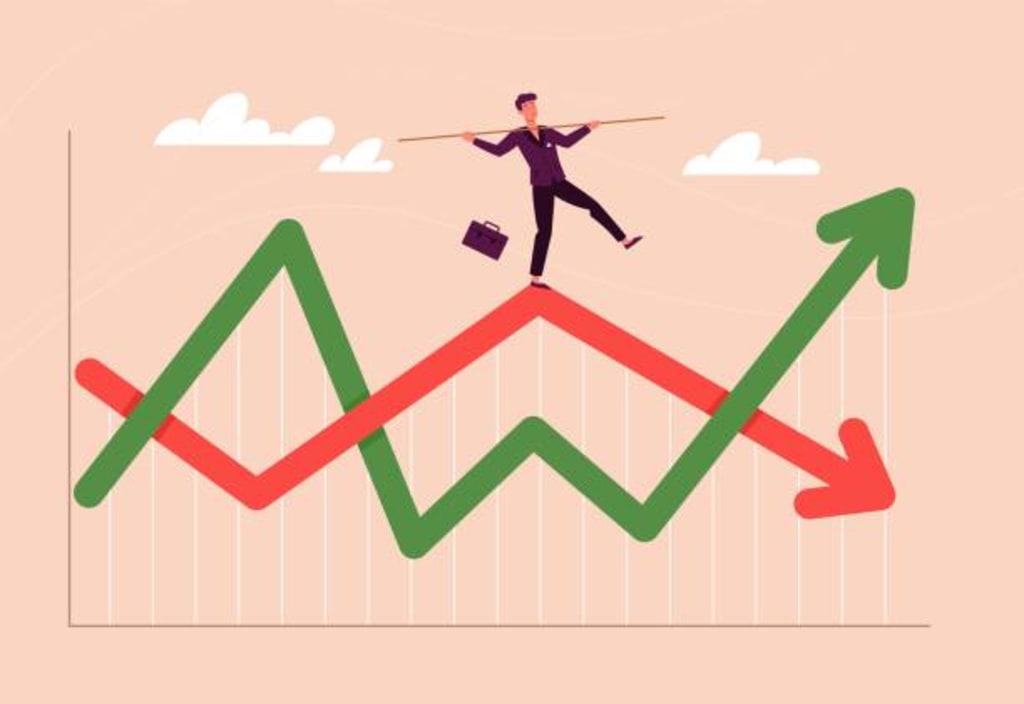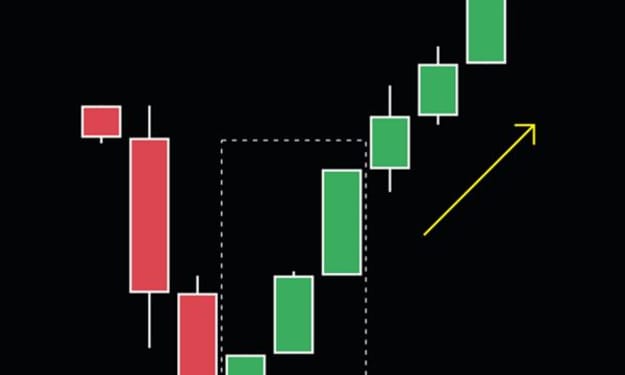How to Stay Grounded in a Volatile Market: A Trader's Guide
Understanding Volatility in the Market

As a trader, you are likely no stranger to the ups and downs of the market. Volatile conditions can be both enticing and intimidating, offering the potential for significant gains but also posing the risk of substantial losses. In this article, we will delve into the world of volatile markets and explore how you can navigate them while maintaining your financial security and trading success.
Understanding Volatility in the Market
Before we dive into the strategies and tips, let's take a moment to understand what volatility in the market means. Volatility refers to the rapid and unpredictable price movements of an asset or market. It can be caused by various factors, such as economic events, geopolitical tensions, or market sentiment. Volatile markets are characterized by large price swings, which can present both opportunities and challenges for traders.
The Temptation of Volatile Markets
The allure of volatile markets is undeniable. Traders may feel a sense of excitement and the urge to jump into every high-risk opportunity they encounter. However, it is crucial to recognize that not all traders thrive in such conditions. Each trader has their own strengths and preferences, and it's essential to assess whether volatile markets align with your trading style and risk tolerance.
Staying Safe in Volatile Conditions
When the markets are moving quickly and erratically, staying safe should be your top priority. It's essential to resist the pressure of feeling like you must trade every opportunity that arises. Instead, focus on protecting your capital and managing risk effectively. Consider reducing your position size and widening your stop-loss orders to account for increased volatility.
The Importance of Normal Market Conditions
While volatile markets can offer extraordinary profit potential, it's important to remember that the bulk of trading opportunities often arise in normal market conditions. These periods may not have the same exhilarating price swings, but they present a more stable and familiar environment for many traders. Embrace the normal markets and capitalize on the opportunities they offer.
Strategies for Trading Volatile Markets
If you choose to trade in volatile conditions, be prepared with a sound strategy. Evaluate the unique challenges of these markets and adjust your approach accordingly. Consider employing shorter timeframes, tighter stop-loss orders, and a heightened awareness of market sentiment. Keep your emotions in check and stick to your plan even when faced with intense price movements.
The Myth of Volatility Equaling Money
While volatile markets can indeed lead to significant profits, it is a myth that you must excel in such conditions to be a successful trader. Consistency and discipline are more critical in the long run. Focus on building a robust trading system that can perform well in both volatile and normal market conditions, providing you with steady profits over time.
Learning from Volatile Market Environments
Watching and learning from volatile market environments can be incredibly valuable, even if you choose not to actively trade in them. Observing the price action and understanding how markets behave under such conditions can enhance your overall market knowledge and improve your decision-making skills.
The Role of Emotional Control in Trading
Emotions can play a significant role in trading, particularly in volatile markets where fear and greed can be amplified. Maintaining emotional control is essential to make rational decisions and avoid impulsive actions that may lead to losses. Learn to recognize and manage your emotions to become a more disciplined trader.
The Value of Patience and Adaptability
Patience and adaptability are virtues in trading, especially when navigating volatile markets. Be patient during quiet market periods, and be prepared to adapt your strategy when market conditions change. Flexibility is a valuable asset in the trading world.
Balancing Risk and Reward
In volatile markets, the potential for both significant gains and substantial losses is heightened. Balancing risk and reward is crucial to long-term success. Use proper risk management techniques, diversify your portfolio, and avoid placing all your bets on one trade.
Capturing Opportunities in Both Volatile and Normal Markets
Successful traders know how to capture opportunities in various market conditions. Be open to trading in both volatile and normal markets, adjusting your approach accordingly. This adaptability can help you stay consistently profitable.
The Long-Term Perspective: Consistency Over Time
Trading is not about hitting a home run in every trade; it's about consistent profitability over time. Focus on building a track record of steady gains rather than trying to score big wins in every market swing.
Common Mistakes to Avoid in Volatile Markets
Avoid common mistakes such as overtrading, ignoring risk management, chasing losses, and making impulsive decisions in volatile markets. Recognizing and rectifying these errors will contribute to your success as a trader.
The Art of Watching and Learning
Not every moment in the market is an opportunity to trade actively. Sometimes, watching and learning can be equally beneficial. Use quiet market periods to analyze past trades, fine-tune your strategy, and expand your trading knowledge.
FAQs: Answers to Your Burning Questions
Q: Is trading in volatile markets riskier than trading in normal markets?
A: Volatile markets carry higher risks due to larger price swings, but they can also offer greater profit potential. The key is to adjust your strategy and risk management to suit the market conditions.
Q: Should I avoid trading in volatile markets if I'm a beginner?
A: If you are new to trading, it's advisable to gain experience in more stable market conditions before venturing into highly volatile markets. Start with a solid foundation and gradually explore riskier environments as you become more proficient.
Q: How do I control my emotions when trading in volatile markets?
A: Emotions can be challenging to control in volatile markets. Establish clear trading rules, stick to your strategy, and avoid making impulsive decisions based on fear or greed.
Q: Are there specific technical indicators or tools that work best in volatile markets?
A: Different traders have various preferences for technical indicators. Experiment with different tools and find the ones that align with your trading style and help you navigate volatile conditions.
Q: How do I know when it's the right time to trade in a volatile market?
A: There is no one-size-fits-all answer to this question. Assess your risk tolerance, experience level, and the current market conditions before deciding to trade in volatile markets. Consider starting with smaller positions until you feel more comfortable.
Conclusion
Trading in volatile markets can be both rewarding
About the Creator
Jeewan Goswami
Hi Iam Jeewan Goswami






Comments
There are no comments for this story
Be the first to respond and start the conversation.